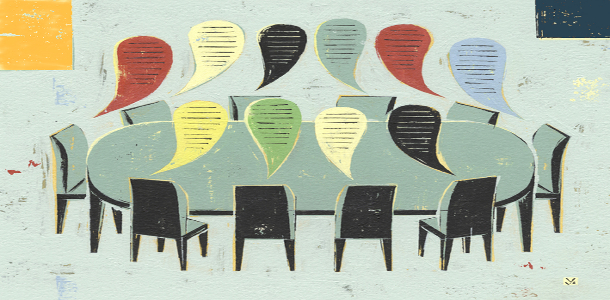Posted by laurajane on Jul 9, 2014 in Uncategorized | Comments Off on Is there a definitive answer to this capitalization conundrum?





Posted by laurajane on Jul 1, 2014 in Uncategorized | Comments Off on 25 words that are difficult to spell
25 words that are difficult to spell
I’ve been writing professionally for more than 15 years (starting when I was 10 years old, of course), but I still struggle with certain basic aspects of putting words into Word. I still edit while I write. I don’t take breaks when I need to. I sometimes get too hung up on following the style guide. This week, I’ve been struggling with spelling. There are certain words that I always look up in the dictionary. No matter how many times I write them, I can’t remember how to spell them. Maybe I should try writing these 10 times each: 1. acquiesce 2. aficionado 3....

Posted by laurajane on Jun 24, 2014 in Uncategorized | Comments Off on Add flavor to your writing with colorful turns of phrase
Add flavor to your writing with colorful...
As writers, we have an arsenal of rhetorical devices and figures of speech at our disposal to enliven our copy. The devices most often used are similes and metaphors. When used correctly, these phrases help us paint pictures with words, adding depth to our messages. (Under John’s leadership, our workplace had become like “Animal Farm.”) When used incorrectly, the results can be confusing and silly. (It sticks out like a sore throat.) It’s also important to avoid clichés—metaphors that are so commonplace that they’ve lost their power completely. (Clichés can...

11 weird spelling facts
Not to put too fine a point on it, English spelling rules are just weird. We have words that sound the same but are spelled differently (such as “their,” “they’re,” and “there”); words with letters that have nothing to do with how the word is pronounced (“brought,” “although”); words that contain silent letters (“gnat,” “pneumonia”); and words that simply don’t follow any spelling rules. Here’s a look at 11 weird, random facts about English spelling. Not sure this will make our jobs as writers and editors any easier, but it’s a nice...

Posted by laurajane on Jun 12, 2014 in Uncategorized | Comments Off on 36 redundant phrases to eliminate from your writing
36 redundant phrases to eliminate from y...
As writers, editors, and PR professionals, we are keenly aware of having to fight for readers’ attention. My daily sanity check is to ask, “Is someone actually going to read this?” One way I’ve found to help readers is to use concise language and eliminate redundancies. As Strunk and White advise, “Make every word tell.” Below is a list of phrases in which every word does not tell. These phrases are redundant, repetitive, wordy, and verbose. Paring phrases such as these is an easy way to tighten your writing. (Redundant words are italicized.) • added...

Posted by laurajane on Jun 4, 2014 in Uncategorized | Comments Off on What kind of a word nerd are you?












